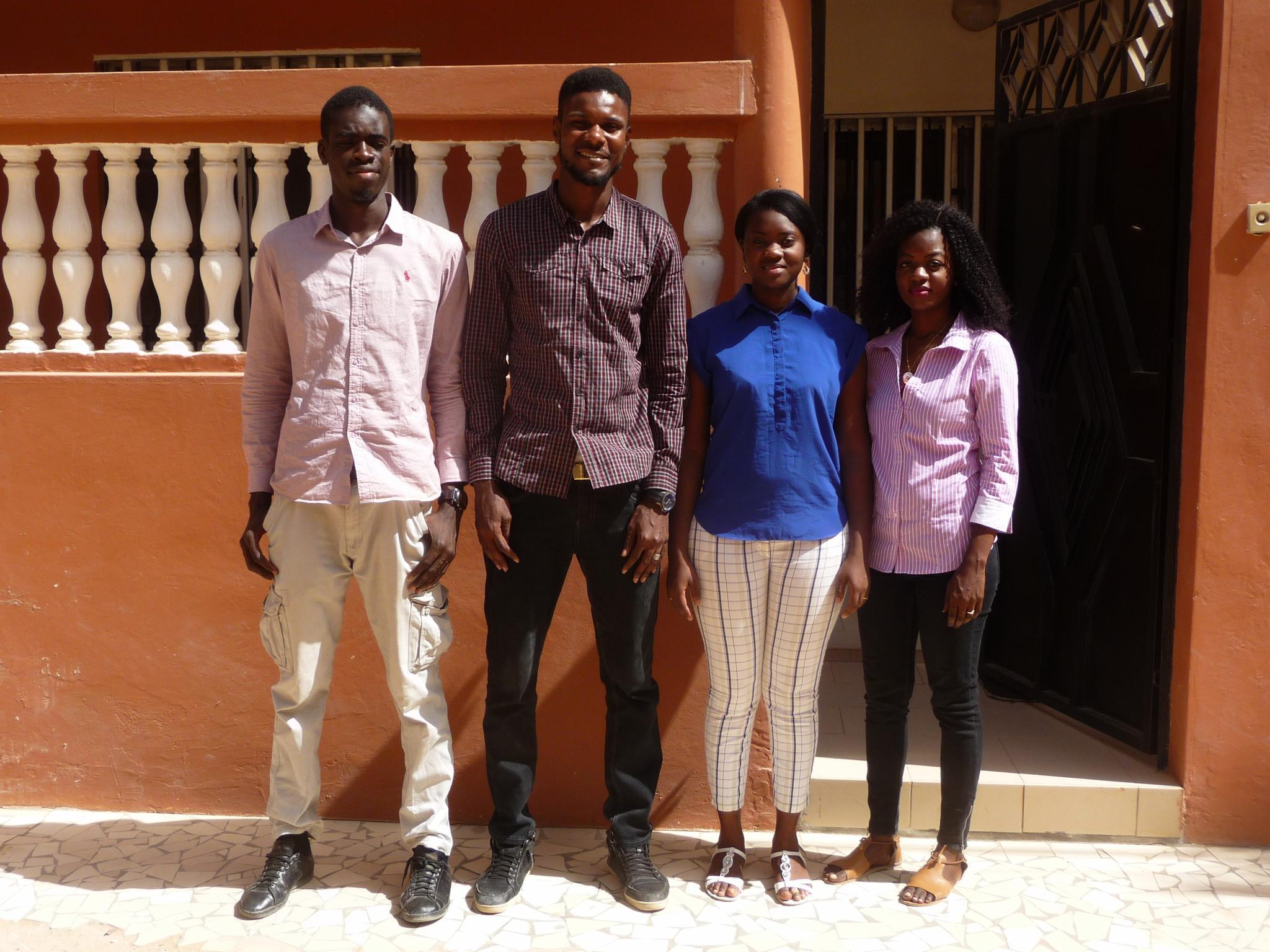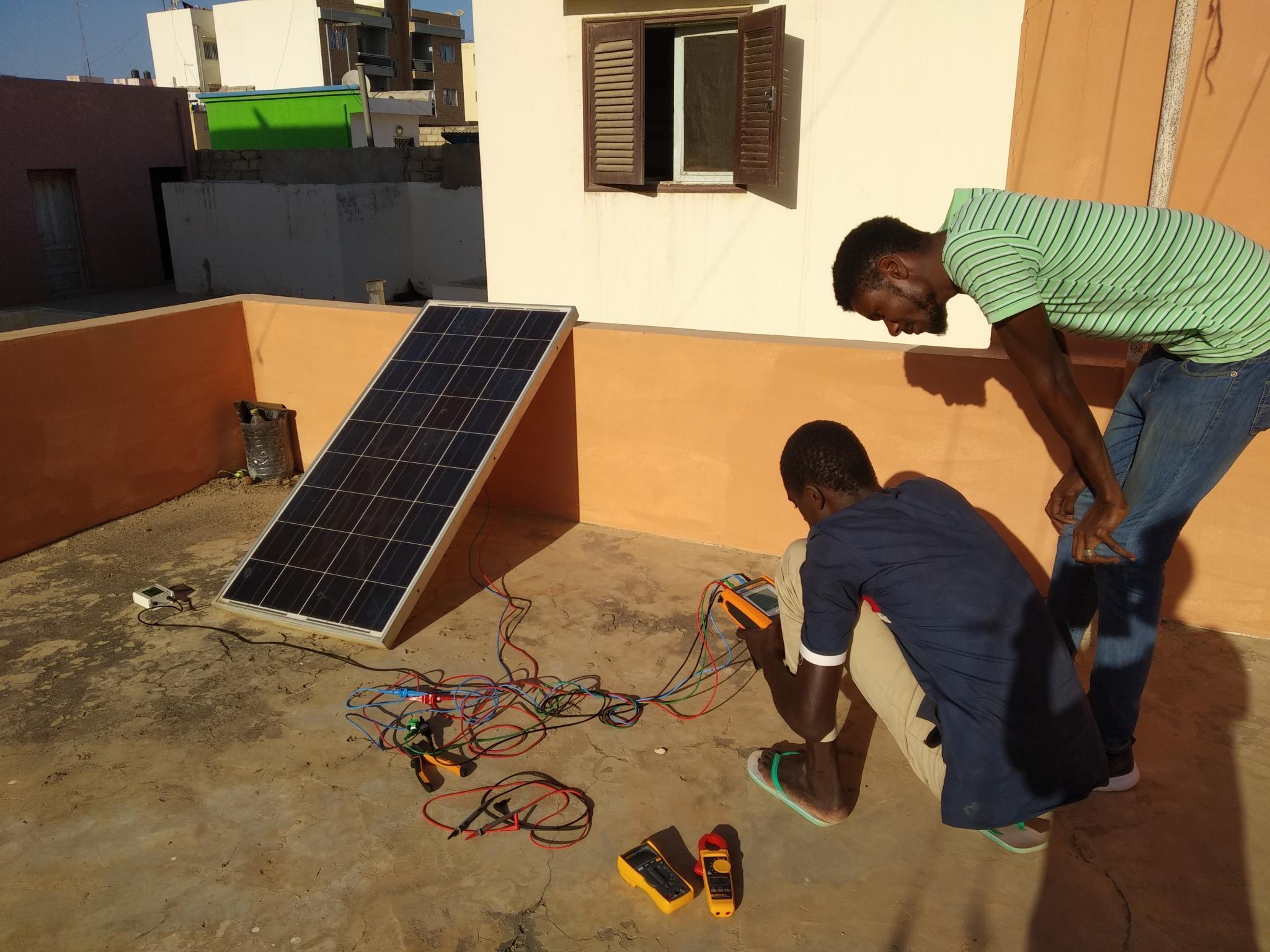EPFL's researchers open research center to test solar panels in Dakar

Tests performed at the research center CT2S© 2019 EPFL
EPFL's scientists recently inaugurated a new research center in Senegal to test solar panels and their underlying components. Founded in conjunction with École Supérieure Polytechnique de Dakar, the center will help solar-panel operators assess the quality of parts they source locally. It will also provide specialized training and host PhD students performing thesis work.
Despite having one of the highest sunshine rates in the world, Senegal uses very little solar power. That’s because the photovoltaic equipment available on the local market is often unreliable, with huge differences in performance from one solar panel to the next. PV equipment manufacturers from around the world have gotten into the habit of sending to Africa their faulty or poorly performing devices, which rarely work according to manufacturers’ specifications. As a result, neither businesses nor consumers trust the solar panel components they acquire from local suppliers.
To help change that, scientists at EPFL’s PV-Lab opened a research center in Dakar to test PV equipment. Called CT2S, and made possible thanks to the support of Switzerland’s REPIC renewable-energy program and École Supérieure Polytechnique de Dakar, it will have three goals. First, to enable businesses and consumers to test components they purchase locally. The plan is to eventually create a certification system that will help buyers identify sturdy and reliable products. Second, to train technicians and advisors working in Senegal’s solar power industry so that they can advise buyers and make sure best practices are followed during PV equipment installation and maintenance. Third, to conduct research on PV system reliability in the harsh conditions of Sub-Saharan Africa – one PhD thesis project is already underway.

The four employees of the CT2S center / © 2019 EPFL
For EPFL, CT2S will provide a way to obtain field data in a climate very different from Switzerland’s. “Right now it’s really hard to get field data that are reliable and sufficiently documented,” says Nicolas Wyrsch, a PV-Lab scientist involved in creating the center. The inauguration ceremony was held early this summer and was attended by representatives from the region’s main renewable-energy organizations, as well as Switzerland’s ambassador to Senegal.
Much of the funding for the center, which today employs four people, was provided by Meridiam – a French investment firm that owns solar power plants in Senegal – and Canada’s International Development Research Centre (IDRC). This funding will be used not only to build up the center’s research facilities but also to train some 200 technicians and advisors.
The center will eventually raise its own funding. Once firmly established, its next step will be to promote solar power generation across Sub-Saharan Africa. “We are already in contact with other West African countries to set up similar research centers. We think these will help restore people’s trust in solar power,” says Wyrsch.

Tests performed at the CT2S center © 2019 EPFL